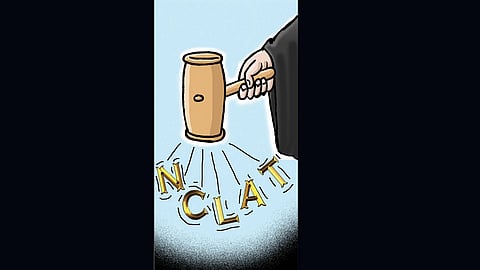Battle royale
Ratan Tata must be a relieved man. One major question mark on his otherwise unblemished career was the question of the removal of the chairman, Cyrus Mistry, from Tata Sons. The very person he and his board had appointed. More than the ignominy of the ouster was the way in which Mistry was removed. What still remains a mystery is why Tata did it knowing fully well that his actions could severely damage his reputation and legacy.
While the mystery still remains unsolved, the three judge Supreme Court judgement delivered in the Tatas vs Mistry case has finally laid to rest Tata Sons’ exercise of power and not only set aside the order of the NCLAT, which had sought the reinstatement of Mistry as the chairman of Tata Sons, but also passed severe comments on Mistry. From the very beginning Business India had said that Mistry had no case, based on the fundamental provisions of company law.
“It is not about winning or losing. It is a validation of the value and ethics that have always been the guiding principles of the group,” tweeted chairman emeritus Ratan Tata soon after the judgement was made public. The judgement, will bring an end to the most high-profile corporate battle.
Overturning all the orders passed by NCLAT and also the additional claims made by Mistry, the bench came down heavily on NCLAT. At one point it went on to remark that quasi-judicial tribunals were created with a view to avoid delays in the dispensation of justice, but instead of eliminating delay, it had eliminated discipline in the various pleadings and procedures involved.
The battle surfaced after the board of Tata Sons ousted Mistry, in 2016. And, as expected, Mistry sought legal redress by knocking at the doors of various courts and quasi-judicial bodies before all the appeals and orders passed by NCLAT were disposed of by the highest court. Various points of law were examined in great detail and are likely to serve as a benchmark in all future cases in the coming years. These included some fundamental questions as to what constitutes minority oppression, the principle of what is just and equitable, corporate governance and the rights governing private and public companies.
The bench observed that Mistry’s appointment was based on his merits and not because he was the representative of Shapoorji Pallonji’s 18.5 per cent stake in the company. There are several precedents to the effect that an illegal dismissal does not make the dismissal a nullity. Another point related to the articles of association regarding which the bench observed that the Shapoorji Mistry group had invested in Tata Sons many years after it was incorporated and had then accepted the articles of association. No objections were raised at the time.
One major point which the bench did not deal with, and rightly so, was the valuation of the 18.5 per cent holding of the SP group. There is no legal basis for it to value and separate the shareholders. Having said that it was best left to both parties to arrive at a fair price. “We cannot adjudicate on the fair compensation. We will leave it to the parties to take the Article 75 (of Tata Sons) route or any other legally available route in this regard,” the court said. The courts added that the value of shares and the value at which shares were pledged by Mistry also require to be taken into account.
The point of contention was the value of Rs1.70 lakh crore claimed by Mistry’s team and Rs80,000 crore assessed by Tatas. The court remarked that divorce without acrimony should be encouraged. The valuation is likely to be a complex affair. Tata Sons is believed to value shares at periodic intervals through a complex method of valuation. Mistry cannot claim the shares of the holding company should be valued at the total marketcap of all the listed shares held by Tata Sons Ltd, and then some more.
Most investment companies holding group shares do suffer a steep holding discount. Shares of Tata Investments, another holding company of the Tata group, are valued at 0.5x the book value. Pilani, a Birla group holding company, is valued at 0.32. While the aim is not to second-guess the right valuation of Tata Sons, Mistry has to realise that some give and take will be required to bring about a speedy end to the vexatious battle. And there is no reason to believe that Tata would be unfair or seek to squeeze him out.
As to who could be the buyer of the shares (since Tata’s are not in a position to buy him out at one stroke); there are large pools of patient capital, particularly with the sovereign wealth funds and the large private equity funds which would be happy to partner Tatas. It is just a question of structuring a deal that works for Tatas and the investors. Mistry is relatively young and with age on his side, he can still start afresh.

